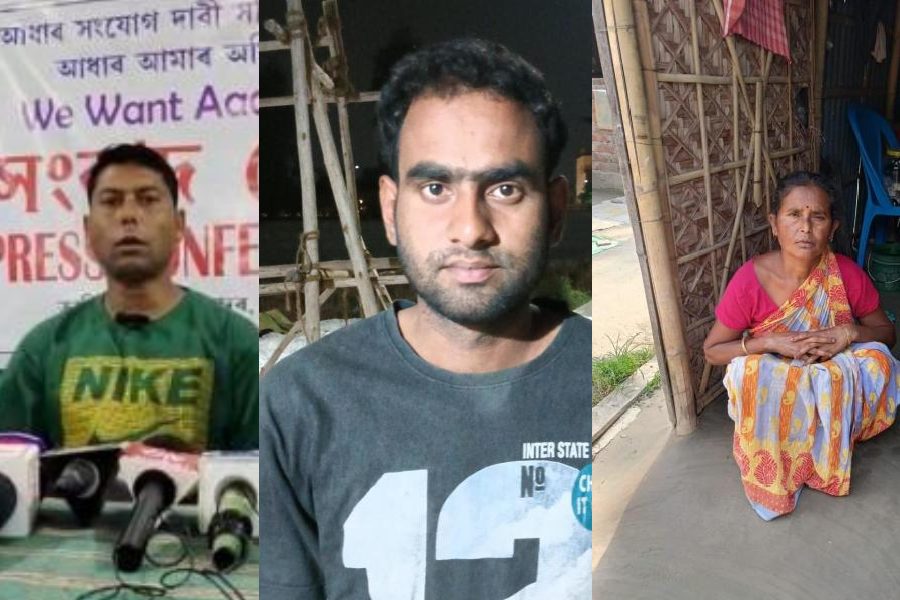Rina Ghose from Chirang district in Lower Assam is distraught. The 49-year-old does odd jobs in her neighbourhood to supplant the ₹1,000 a month she is paid as a midday meal worker.
She is not receiving government benefits, such as Orunodoi (the Assam government’s ₹1,250 monthly assistance for poor women), free rice or PMAY housing.
Nearly 90km away in Rangia, Kamrup, journalist-activist Samsul Haque, 37, had to buy a car in the name of a relative because he could not operate his bank account. He cannot renew his driving licence, either, or claim his 5kg free rice although his wife has a ration card.
Over 2,800km away in Bengaluru, Fazrul Hoque, a 27-year-old from Assam’s Dhubri district who works in a cigarette factory, sees his salary transferred to a colleague — who then pays him after taking a “small cut” — because he has no bank account. Nor can he apply for a ration card.
The source of the trio’s pain is their lack of an Aadhaar card. Their applications for the card got rejected because their biometrics were locked during the exercise to update the National Register of Citizens (NRC) in Assam.
All three, however, figure on the final NRC.
Over 27 lakh people across Assam’s 35 districts are without Aadhaar cards. They were among the 40 lakh-plus left out of the draft NRC in 2018, who later had their biometrics collected by the state general administration department at the claims-and-objections stage for inclusion in the citizenship register.
These 27 lakh include 7.94 lakh people who made it to the final NRC — announced in August 2019 — and 19 lakh who didn’t.
The biometrics were locked because the then NRC coordinator, Prateek Hajela, had submitted a standard operating procedure (SoP) before the Supreme Court in 2018 saying those excluded from the draft list should not be given Aadhaar cards. The apex court had accepted the plea, and the bar has not been lifted, a former official said.
Those excluded from the final NRC will have to prove their citizenship at the foreigners’ tribunals. However, this process has been stalled since the ruling BJP and other organisations claimed the final list contained mistakes and demanded an error-free NRC.
The 27 lakh people affected belong to every ethnic and religious community.
Kokrajhar, Rina’s constituency, and Dhubri, Fazrul’s, will vote on May 7 while Darrang-Udalguri, Samsul’s constituency, voted on April 26. But the Aadhaar problem has not figured in the poll discourse here, the affected people say.
Those affected face multiple problems: they cannot open bank accounts, file income-tax returns, or receive government welfare or scholarships. They face
obstacles to joining government jobs.
Several organisations — including the Guwahati-based NGO, Assam Public Works, the original petitioner in the Supreme Court that led to the update of the 1951 NRC in the state — have petitioned the apex court requesting the unlocking of the biometrics.
In February this year, Assam chief minister Himanta Biswa Sarma told the Assembly that his government was in touch with the Centre to provide relief to the affected.
The 27 lakh are still waiting.
Dhubri-based Habibul Bepari, a member of the rights body Citizens for Justice and Peace, said most of the affected people are from the marginalised sections, cutting across religions. “There’s a whole lot of government work that is impossible to carry out without an Aadhaar today. The government and the political parties should have taken the issue up seriously and provided relief to those affected,” Habibul said.










